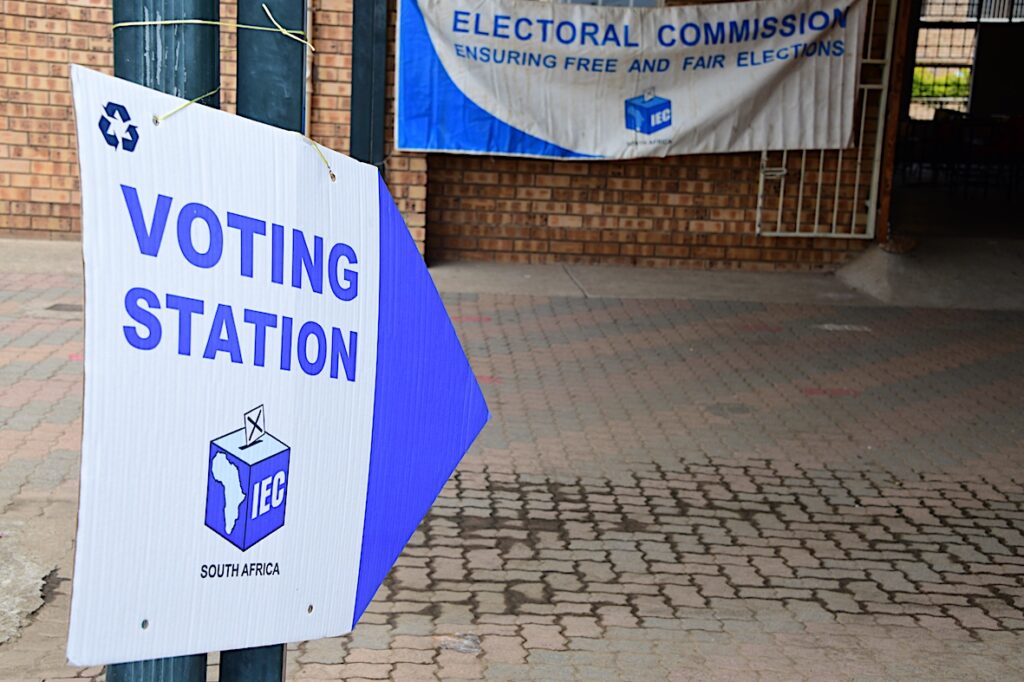2024 will be the biggest year for democracy in history. In a remarkable milestone in human history, more than 4 billion people, more than half of the world's population in more than 40 countries, will go to the polls.
National elections are held in the United States, India, Indonesia, Russia, United Kingdom, Pakistan, Bangladesh, Taiwan, Mexico, and South Africa, to name just a few. The European Union will also vote. This hectic election schedule is unusual not only in its sheer size but also in the diversity of nations and ethnic groups participating.
advertisement
Continue reading below
It is tempting to see this record as a victory for democracy as the dominant organizing principle for governing the peoples of the modern world.
But a closer look reveals that democracy is at risk on many fronts. Although these challenges take different forms across jurisdictions, some clear patterns are emerging. Although 2024 will be a tough year for democracy, there is still reason to be cautiously optimistic about its future.
Here's a roundup of some of the key elections that will shape the world in 2024.
America
The most high-stakes elections in 2024 are the presidential, House, and Senate general elections in November. For decades, America has held its position as the world's most powerful democracy and the guarantor of democratic governments around the world (if flawed).
Donald Trump is the likely Republican candidate. In his previous term as president, he did more to undermine democracy than any previous executive, according to an analysis by Variety of Democracy (V-Dem).
He now promises to punish political opponents, revoke the independence of the Justice Department, and expand presidential power into non-political areas of government administration.
In response, President Joe Biden warned that “democracy is on the ballot” in the 2024 presidential election.
At this point, American voters don't seem to care much, with Trump leading in many major polls.
India and Indonesia
The rise of democracy in India and Indonesia, the world's second and fourth most populous countries, has been transformative for the global advancement of human freedom. The scale of elections in these developing countries, with a total population of 1.7 billion people, is a miracle in modern government.
Indian Prime Minister Narendra Modi appears almost certain to be re-elected to a third term in elections likely to be held in April-May.
Indonesian Defense Minister Prabowo Subianto is the clear front-runner to become the next president of the world's largest Islamic nation in February.
In both cases, there is a risk that these “strongman” leaders, after gaining power in free and fair elections, will oversee illiberal policies that strain democratic institutions.
UK and Europe
A general election in the UK is likely to be held in the second half of 2024. Current opinion polls suggest a victory for Keir Starmer's Labor Party, marking the first change of government in 14 years.
If realized, it would serve as a reminder of democracy's ability to enable the transfer of political power between competing interests without causing large-scale bloodshed – a reminder that humanity has Most of them have failed.
Other elections in Europe will serve as a barometer for the position of the populist far right.
Many analysts believe that the victory of anti-Islam extremist Geert Wilders in the Dutch general election in November is due to a surge in far-right support in June's European Parliament elections and national elections in Austria, Belgium, and Croatia. This means that it is predicted. Finland.
advertisement
Continue reading below
Africa
More than a dozen African countries are holding national elections this year, including Rwanda, Ghana, Tunisia, South Sudan and Algeria. But the most attention will be on South Africa's mid-year elections, the most important since the end of apartheid in 1994.
Current opinion polls show that the African National Congress (ANC), which has been in power for 30 years, has failed to win the 50% of votes it needs to rule independently, ending 30 years of one-party rule. Dew.
fake election
It must be specifically mentioned that the 2024 elections will not be free and will not be fair.
Russia, Rwanda, and Belarus are ruled by oppressive rulers who imprison opponents and hold sham elections that give them over 90% majorities.
Additionally, sham elections are being held in Bangladesh, Iran, and Tunisia, where leaders allow opposition parties to compete but not win.
Can democracy pass these tests?
The elections take place against a backdrop of widespread illiberalism around the world, weakening of independent institutions in some large democracies, and creeping disillusionment with the benefits of democratic institutions in developed democracies, especially among young people. There is.
But there is also reason for cautious optimism that the long arc of history continues to steer decisively toward a more democratic world.
Democracy remains the model that most developing countries aspire to. According to Freedom House, there were 69 electoral democracies in 1990, but by 2014 this had increased to 122. This shows that even dictators and tyrants feel the need to condition themselves for democratic delegation. And surveys of citizens in developed democracies continue to show high support for democratic political ideals.
“Government of the people, for the people, and by the people” still has significant advantages over all other options currently being tried. But in 2024, it will be put to a big test.![]()
Nicholas Rees I am the chief researcher of Melbourne School of Government, University of Melbourne.
This article is republished from The Conversation under a Creative Commons license. Read the original article.

